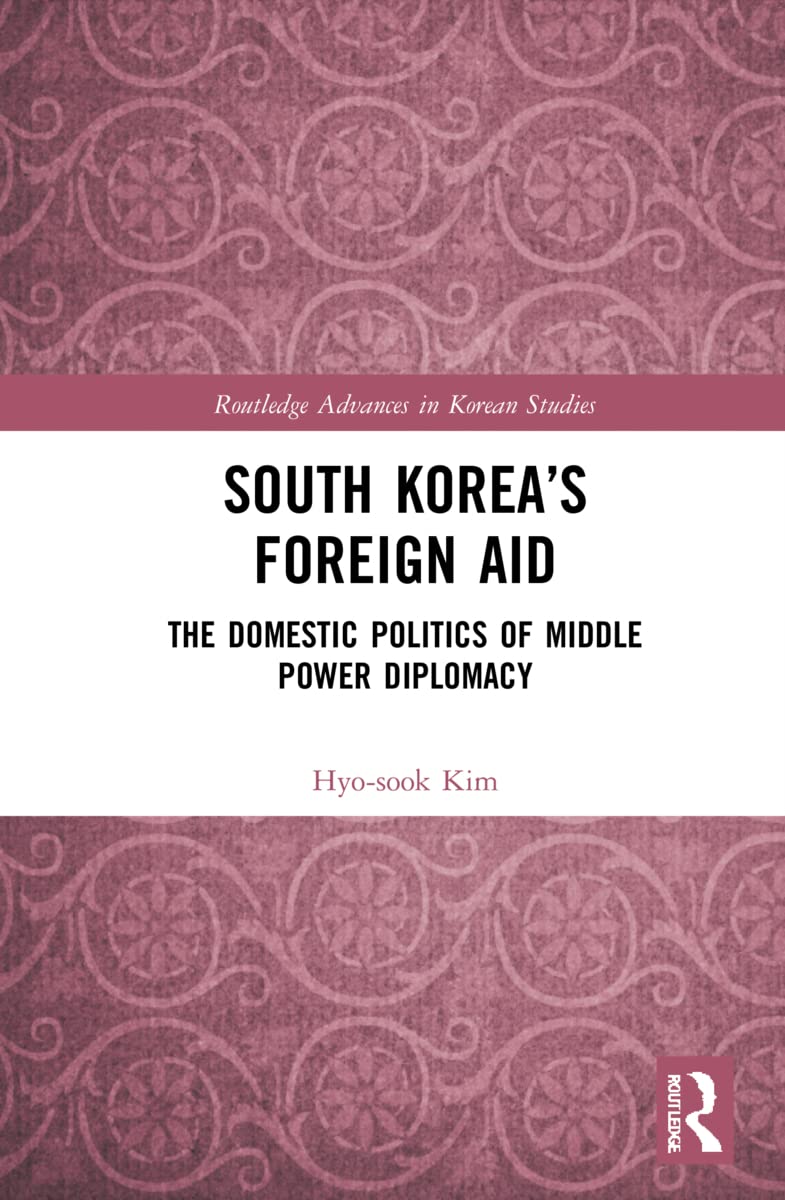South Korea’s Foreign Aid: The Domestic Politics of Middle Power Diplomacy
This book examines the impact of domestic politics on South Korea’s middle power diplomacy through the provision of foreign aid.
Since the 2000s, the rise of emerging nations as donors has brought about a remarkable transition in the international development community. South Korea has closed the gap with other Development Assistance Committee donors in terms of the quality of its aid. In doing so, it has taken on a more active role as a middle power, acting as an agenda setter and a mediator in the field of development and many other wide policy areas, including trade, finance, environment, security, and peacekeeping. What factors, then, have encouraged South Korea to maintain and enhance the existing international development system? Not only how they behave but also how their behavior is determined is essential to truly understand the impact of emerging donors on the existing order.
In these contexts, this book highlights the significance of domestic politics in determining South Korea’s foreign aid behavior, framing it in terms of South Korea’s wider middle power diplomatic strategy based on two assumptions: (1) middle power diplomacy such as aid pursuing multilateralism and soft power strategy is a rational choice for South Korea; and (2) the president is the most influential decision-maker in South Korean foreign aid. The analysis in this book particularly focuses on the role of the National Assembly and government organizations, which most previous studies have missed. Based on the literature review, this book selects two independent variables and examines their impact on the official development assistance (ODA) provision for middle power diplomacy (a dependent variable) led by the president: (1) the ideological distance of the ruling party of the National Assembly to that of the president; and (2) the autonomy of government organizations. The analysis is conducted by using qualitative analysis methodology and discussing three cases covering the legal framework of the overall South Korean ODA policy (chapter 3) and sectoral aid policies, including the Saemaul Undong ODA (chapter 4 and chapter 5) and international electoral assistance (chapter 6). These cases show that the legislative branch and governmental organizations influence South Korea’s policy choice for accomplishing middle power diplomacy by materializing or blocking the President’s preference.
Since the 2000s, the rise of emerging nations as donors has brought about a remarkable transition in the international development community. South Korea has closed the gap with other Development Assistance Committee donors in terms of the quality of its aid. In doing so, it has taken on a more active role as a middle power, acting as an agenda setter and a mediator in the field of development and many other wide policy areas, including trade, finance, environment, security, and peacekeeping. What factors, then, have encouraged South Korea to maintain and enhance the existing international development system? Not only how they behave but also how their behavior is determined is essential to truly understand the impact of emerging donors on the existing order.
In these contexts, this book highlights the significance of domestic politics in determining South Korea’s foreign aid behavior, framing it in terms of South Korea’s wider middle power diplomatic strategy based on two assumptions: (1) middle power diplomacy such as aid pursuing multilateralism and soft power strategy is a rational choice for South Korea; and (2) the president is the most influential decision-maker in South Korean foreign aid. The analysis in this book particularly focuses on the role of the National Assembly and government organizations, which most previous studies have missed. Based on the literature review, this book selects two independent variables and examines their impact on the official development assistance (ODA) provision for middle power diplomacy (a dependent variable) led by the president: (1) the ideological distance of the ruling party of the National Assembly to that of the president; and (2) the autonomy of government organizations. The analysis is conducted by using qualitative analysis methodology and discussing three cases covering the legal framework of the overall South Korean ODA policy (chapter 3) and sectoral aid policies, including the Saemaul Undong ODA (chapter 4 and chapter 5) and international electoral assistance (chapter 6). These cases show that the legislative branch and governmental organizations influence South Korea’s policy choice for accomplishing middle power diplomacy by materializing or blocking the President’s preference.

Publisher
Routledge
ISBN
9780367895754
Publication date
1 Jan 2021 – 31 Dec 2021
Specialisation
Social Sciences
Theme
International Relations and Politics
Region
South Korea